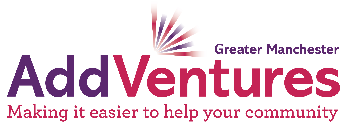It’s unlikely that you come into this situation with no income: you are probably either getting Jobseeker's Allowance as a joint-claim couple, or getting Employment and Support Allowance because either you are not fit for work, or your partner is not fit for work. It may turn out that this can just carry on, although you do need to make sure that you tell the Jobcentre Plus anyway when you have the baby. But in case there is a risk of it stopping it is worth knowing that you may be able to claim Income Support for a short time instead, as well as the extra benefits you can claim.
Child Benefit
- To get this, you need to have a child. Not very surprising, I know, but this means that you cannot get this until the baby is actually born.
- It’s the key benefit, because you need it to show the other benefits offices that you have a child.
- Unless your annual income is more than £50,000, the amount you get is fixed: everyone gets the same. The current weekly amount is £20.70 for your first child (you get an extra £13.70 for each other child): this means, for example, that if you’ve just had twins you’ll be entitled to £34.40 per week.
- You claim it from part of Her Majesty’s Revenue & Customs (HMRC for short) called the Child Benefit Office.
- You may get a claim form with the ‘bounty pack’ you’re given after the baby is born, but if you don’t you can either claim it online or by phoning the Child Benefit Helpline on 0300 200 3100.
Child Tax Credit
- Again, to get this you need to have a child. Normally getting Child Benefit should be enough to show this.
- Child Tax Credit (and Working Tax Credit) is administered by part of Her Majesty’s Revenue & Customs called the Tax Credit Office. Unlike Child Benefit, however, it also feels rather like a ‘tax-y’ sort of things. So when you claim Child Tax Credit, they initially work out how much they expect you to be entitled to for the rest of the tax year, and then divide that into weekly chunks, and then check things again after the end of the tax year. One result of this is although I have given weekly amounts below, these are approximate, unlike the amounts I give for other benefits.
- The amount of Child Tax Credit you get depends on how many children you have, what other money you have coming in, and whether any of your children are disabled.
- Assuming you have no other income (apart from what’s on this page), for your first child you will be entitled to about £63.77 per week. If you turn out to have twins, for example, you will be entitled to about £117.08 per week. If any of the children are disabled you may get more.
First child: Annual entitlement: £545 (family element) + £2780 (child element) = £3,325 Weekly entitlement (approx): £3,325 divided by 365 and multiplied by 7 = £63.77 Two children: Annual entitlement: £545 (family element) + £2,780+£2,780 (child elements) = £6,105 Weekly entitlement (approx): £6,105 divided by 365 and multiplied by 7 = £117.08 |
|
- Oddly, you can't claim tax credits online: you need to phone the Tax Credit Helpline on 0345 300 3900.
- As I said before, you are almost certainly getting either Jobseeker's Allowance or Employment and Support Allowance as a couple anyway so you won’t need to claim this. However, if you aren’t, or if stops, you could claim Income Support instead, but only for the following periods
- This is slightly more complicated than you might think, because there are actually four different periods to think about, with slightly different reasons why you’re entitled in each case.
- You can start getting Income Support while your pregnant, if you’re not well enough to work because of the pregnancy.
- You can start getting Income Support if there are 11 weeks before the baby is due, whether you are unable to work or not.
- You are entitled to Income Support for the 15 weeks after the baby
is born, but after that you will normally stop being
entitled because you have a partner.
- Even if these things apply to you, you will not be entitled to Income Support if you are actually working 16 hours or more per week or your partner is working more than 24 hours a week (but this doesn’t apply to you!).
- The amount you get will be reduced if you have other income (although some income is ignored, including the other things on this page) or if you have too much savings or other capital.
- If you have no other income or savings, the amount you get each week will usually be £114.85 if you are both over 18, or sometimes less if either or both of you are under 18.
- You can claim Income Support by phoning the Jobcentre Plus on 0800 055 6688.
Sure Start Maternity Grant
- This is different from the others, as it’s a one off payment: you are normally only entitled to it once, when you have your first baby.
- You can apply for it from 11 weeks before the baby is due to three months after the baby is born (this is the date the baby is actually born, not the date they were supposed to arrive). Do not leave it too late: if the Jobcentre Plus get it after three months after the baby’s born you will definitely not get a grant.
- You can’t get it unless you are also getting one of a list of other benefits: in your case, the ones I need to mention are Income Support and income-based Jobseeker's Allowance.
- You get £500: neither more nor less.
- To claim it you need to get hold of a SF100 form, either online or via the Jobcentre Plus.
- You’re presumably already getting this with your Jobseeker's Allowance. However you should tell your local authority that your circumstances have changed (you’ve had a baby)
- If you want more information about Housing Benefit, click here
Council Tax Support
- You’re presumably already getting this with your Jobseeker's Allowance. However you should tell your local authority that your circumstances have changed (you’ve had a baby)
- Depending on your local authority (council) you might find that you are entitled to more Council Tax Support than you were before.
- If you want more information about Council Tax Support click here
- Tell the Jobcentre Plus that you want to move from Jobseeker's Allowance to Income Support first: if you have health problems while pregnant claim when the health problems begin; otherwise wait till there’s less than 11 weeks left and then end your claim for Jobseeker's Allowance and claim Income Support. To avoid complications about how the due date is calculated I suggest applying when there’s about 9 weeks left.
- Claim the Sure Start Maternity Grant next. Ideally, wait until you know that you’ve been awarded Income Support before doing this, but if the due date is approaching and they still haven’t made a decision, claim anyway.
- As soon as you can after the baby is born claim Child Benefit and Child Tax Credit. You don’t need to do it immediately, but it’s sensible to claim it these in the first month. This is because you can get Child Tax Credit backdated, but only up to a month.
- Also, as soon as you can after the baby is born tell your local authority about it, so that your Housing Benefit and Council Tax Support can be checked and changed if necessary.

